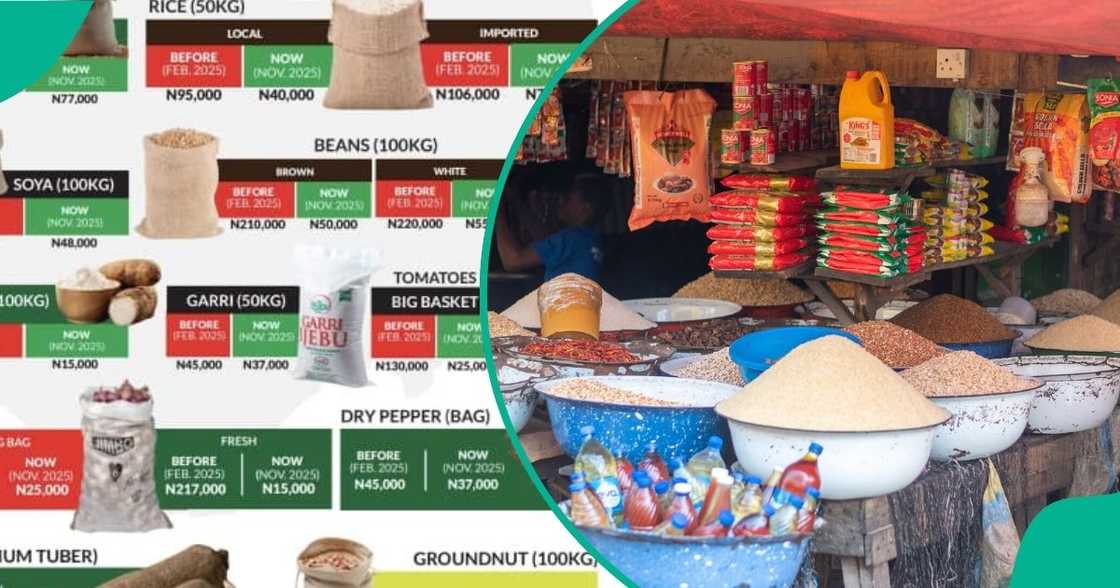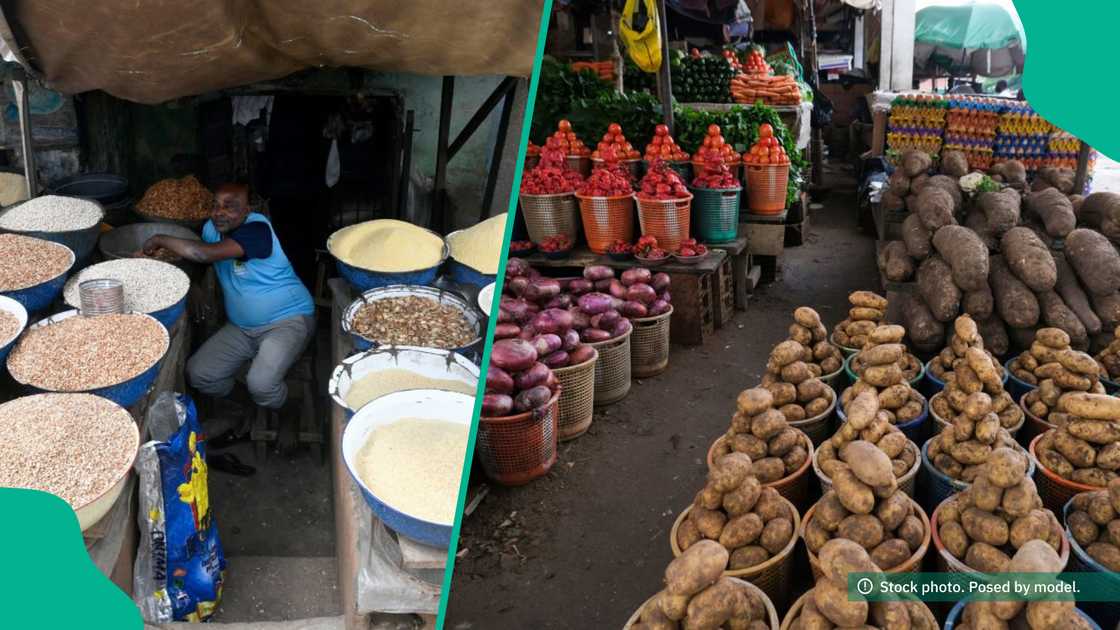Food Prices Crash, Presidency Releases Before And After Rates
- Recent findings show that the prices of major food items have dropped significantly nationwide
- The development came as the National Bureau of Statistics (NBS) reported a drop in headline inflation to 18.02%
- Presidential aide, Sunday Dare, said the drop in food prices is due to the efforts of the government at stemming prices
Pascal Oparada, a reporter for Legit.ng, has over ten years of experience covering technology, energy, stocks, investment, and the economy.
The prices of major food items across rural and urban markets in the Federal Capital Territory (FCT) and other parts of Nigeria have dropped significantly, with some staples recording up to 50 percent reduction, according to reports from local traders and government officials.

Read also
Naira surges again as foreign reserves near $43 billion, banks, FX dealers slash dollar rates
A market survey conducted by Abuja Metro on Wednesday revealed that prices of essential items such as rice, maize, beans, yam, and cassava flour have fallen noticeably compared to just two months ago.

Source: Twitter
Market visits reveal major price reductions
At the Abaji main market, which operates every five days, traders confirmed a steep decline in prices.
According to a Daily Trust report, a mudu (local measure) of local rice that previously sold for between ₦1,800 and ₦2,000 now goes for ₦1,300 to ₦1,500.
Similarly, the price of maize has dropped from between ₦600 and ₦800 per mudu to around ₦350–₦400. White beans, which sold for ₦2,500, now sell for ₦2,000, while guinea corn prices have reduced from ₦1,000 to ₦750. Millet, formerly ₦1,200, now costs about ₦900.
Some traders, however, noted that prices still vary slightly depending on the type and quality of the grain.
The survey also revealed that five tubers of yam, which cost between ₦10,000 and ₦15,000 two months ago, now sell for ₦4,000 to ₦7,000, depending on size and quality.
Similar trend in Kwali and other area councils
At the Kwaita market in Kwali Area Council, which operates every four days, food prices showed a similar downward trend.
A mudu of rice now sells for between ₦1,100 and ₦1,200, compared to ₦1,600 to ₦1,800 a few months earlier. Traders confirmed that while quality influences price, the general cost of grains has fallen across the board.
Presidency attributes drop to economic reforms
Reacting to the development, Sunday Dare, Special Adviser on Media and Public Communications to President Bola Ahmed Tinubu, described the trend as a clear sign of the success of the administration’s economic and agricultural policies.
According to Dare, “The recent significant drop in food prices across Nigeria stands as clear evidence of President Tinubu’s ongoing economic reforms and his commitment to improving the living standards of Nigerians.”
He stated that under Tinubu’s leadership, prices of major staples, including maize, rice, beans, onions, tomatoes, and palm oil, have fallen by 40% to over 55%, reflecting the government’s focused efforts to stabilize the economy, boost food supply chains, and strengthen agricultural productivity.
Economic impact: Relief for households
Analysts say the declining food prices signal reduced inflationary pressure and improved purchasing power for millions of Nigerians.
- Improved Affordability: More households can now access basic food items, reducing hunger and improving nutrition.
- Boost in Agricultural Output: The fall in prices reflects better harvests, enhanced logistics, and greater support for farmers.
- Economic Stability: Lower food prices help slow inflation, easing the financial burden on families.
As markets continue to stabilize, stakeholders hope the downward trend in food prices will persist, marking a positive turning point in Nigeria’s fight against inflation and food insecurity.

Source: Getty Images
Kogi tops list of most expensive states to live
Legit.ng earlier reported that Nigeria’s headline inflation eased to 18.02% in September 2025, down from 20.12% in August, according to the latest Consumer Price Index (CPI) by the National Bureau of Statistics (NBS).
The data shows a broad slowdown in price increases nationwide, largely driven by changes in the base year, but for many Nigerians, the relief remains elusive.
On a month-on-month basis, inflation rose by 0.72%, only slightly below the 0.74% recorded in August, signalling that prices are still climbing—just at a slower pace.
Source: Legit.ng





